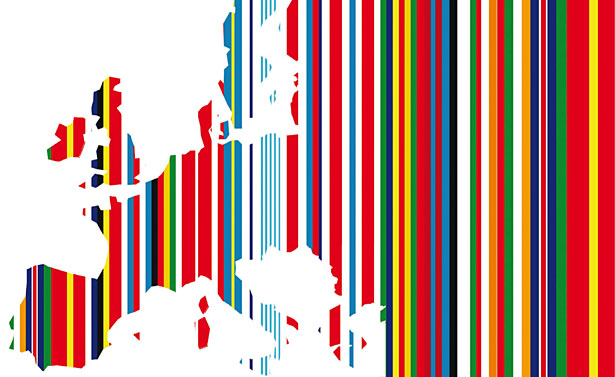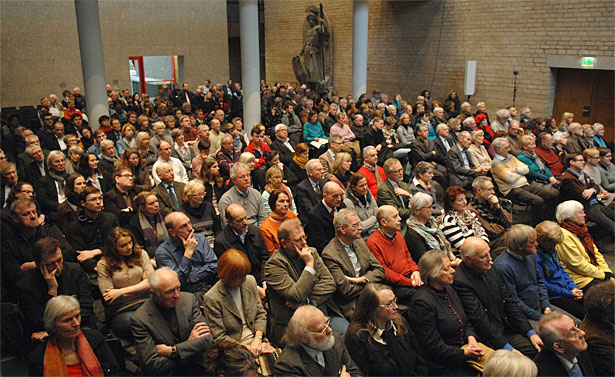"The European Union as a whole is currently under threat. In Germany the approval ratings are at an all-time low and in parts of southern Europe the EU is perceived as an anonymous occupying power. We must therefore restore the trust of Europe's citizens. To this end the European Union must become more democratic. Because Europe is deprived of the principle of the separation of powers which invigorates democracy at the national and regional level!" notes the president of the European Parliament, Martin Schulz, in Cologne's historical town hall on Sunday. The Allianz Cultural Foundation (Allianz Kulturstiftung) had invited Schulz as keynote speaker at this year's Debates on Europe, which the company has been organizing throughout Europe since 2006. The topic had an alarming note to it in the cathedral city and filled the piazetta of Cologne's town hall to the last seat: "Democracy in danger – How the crisis is shaking the foundations of Europe".
In his passionate plea for more democracy in Europe, Schulz did not hold back on criticizing the decision-making practice in Brussels: during the crisis the heads of state and government in the European Council have consistently empowered themselves to make decisions bypassing their parliaments. This "permanent state of emergency" would result in a gradual downgrading of the role of parliaments in Europe, to a disempowerment of both national representative bodies and the European Parliament. Thus, for example, Schulz thinks it is a disgrace that the European Parliament, with its democratically elected representatives from all EU member states, does not have its own right of initiative to propose new draft legislation - as the Bundestag and Bundesrat, as well as the government, are allowed to do in Germany.
Martin Schulz severely criticizes the European Council for behaving like Europe's government. Ultimately, however, each of the 27 heads of state represented in this Council primarily pursues their own national interests. Since the Council is only permitted to make its decisions based on the principle of unanimity, the present-day EU is like a "giant with leaden feet" who is unable to respond to the changes in the world as efficiently and quickly as required. Comparing Europe to a giant with leaden feet also happens to be the title of his new book which appeared in the book shops a few hours beforehand ("Der gefesselte Riese - Europas letzte Chance , Rowohlt Verlag - literally translated as "the tied-up giant - Europe's last chance").
According to Parliament President Schulz, the important decisions should be made on the basis of the principle of subsidiarity at the locations where people are directly affected by them. "The more local, the better". Above all Brussels lacks a "decision-making hierarchy": "what can be done at the national level should be of no concern". However, where the "strength of the community" is needed, the EU is called for. Therefore Schulz calls for further developing the democractic system in Europe, along with its rights and responsibilities, its values and liberties which are unique in the world. Only a democratic, transparent and value-based Europe which actively involves its citizens in shaping the future can be saved from fading into global insignificance.

